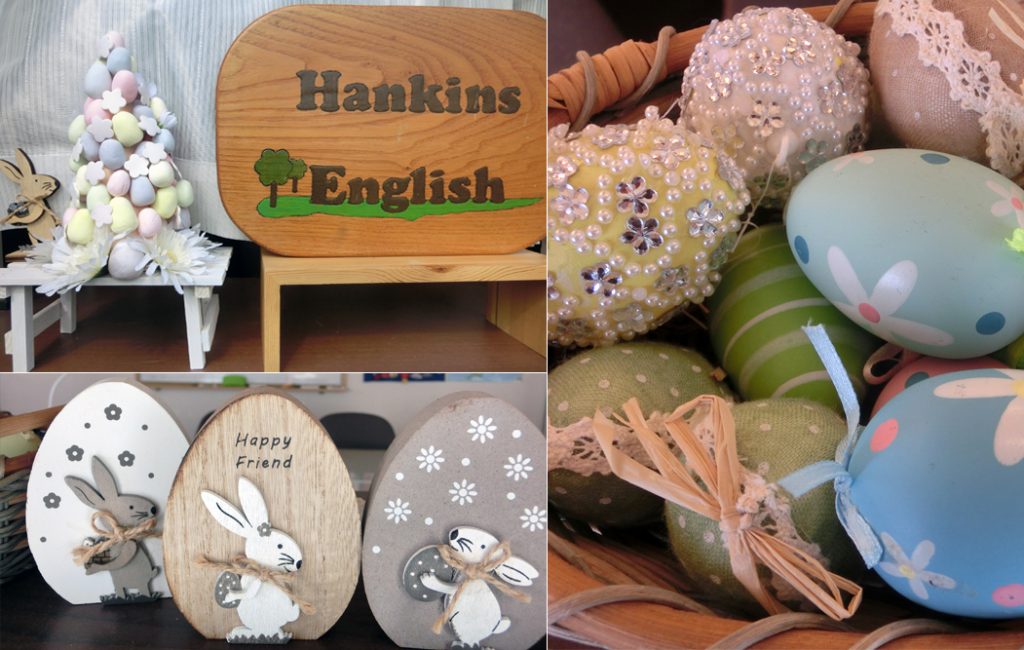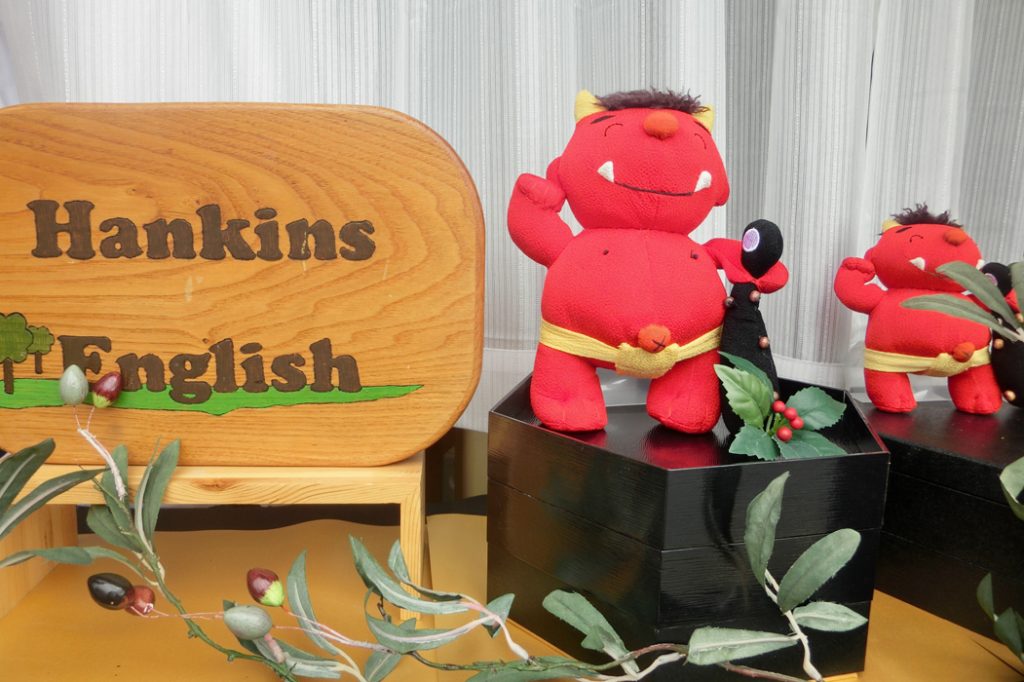
Wishing you a Happy Easter from Hankins English.
Easter (復活祭) is a Christian holiday celebrating Jesus Christ returning from the dead. It is the most important Christian festival and many people who are not Christians also celebrate it as a cultural holiday.
Easter is not held on the same date every year and so is called a “movable feast” (移動祝日). In the UK it is celebrated on the first Sunday following the first full moon which is on or after March 21st (春分の日以後の満月より後にくる最初の日曜日). This means it is celebrated in March or April and can occur as early as March 22nd and as late as April 25th… This year it is celebrated on April 12th in the UK.
Many people go to church on Easter Sunday and exchange greetings cards. There are many non-Christian traditions that are enjoyed by children, such as decorating eggs or hunting for eggs in the garden. In the UK many people also give gifts of chocolate eggs. Another symbol of Easter is a rabbit known as the Easter Bunny and adults sometimes dress up in a bunny costume to entertain children.
British families often get together for an Easter lunch and some traditional foods include roast lamb and special Easter buns and cakes.


